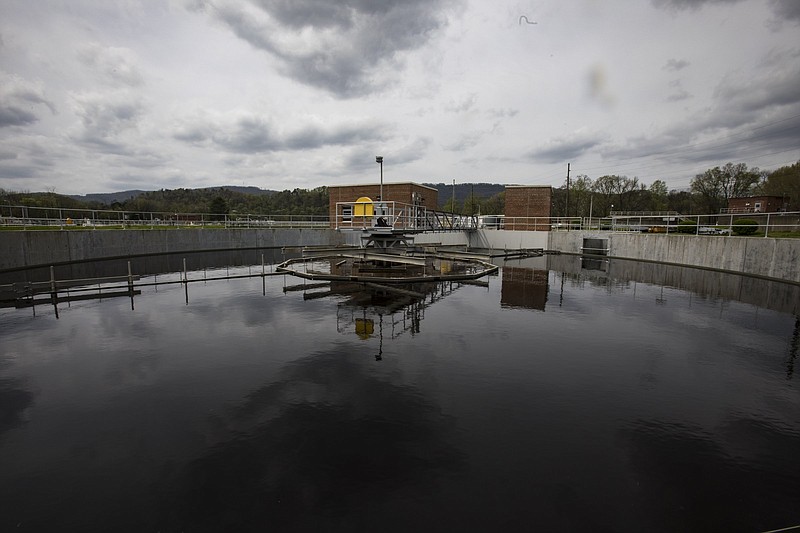A study last month of Hamilton County's wastewater for evidence of COVID-19 infections is showing thousands more cases in the community than publicly reported.
The data - part of an ongoing study of the coronavirus in sewage - reported 8,200 cases of COVID-19 in the county on July 21, a time when the Hamilton County Health Department reported 4,461 confirmed cases.
The information from July 21 is the fifth data point in the city's ongoing sampling of wastewater, showing varying levels of cases in the community. On May 18, the company doing the study, Boston-based Biobot Analytics, reported 1,700 cases in Hamilton County. On May 26, the company reported 12,500 cases. Then, on June 23, the company reported 4,400 cases before the number jumped again to 8,800 cases on July 7 and 8,200 cases on July 21.
The city's wastewater treatment center is sending samples to Biobot to determine the number of cases in the community. Traces of the virus can be found in wastewater, and city officials said the studies are often a conservative estimate to reduce the likelihood of false positives.
Jeff Rose, director of the city's Wastewater Systems Division, said the varying reports seem reasonable since they represent points in time. The overall sample sent for testing is created by taking samples throughout the day, Rose said.
"Many variations in flow occur as far as what's actually in the water at a given time, just like you would expect in any natural stream of water," he said. "The data indicate a significant amount of virus particles in the water and are useful as a general guide, especially for trending."
The cases Biobot is reporting can include active cases the health department has reported, people who are not showing symptoms or who have not been tested and people who have recovered but can still shed the virus in wastewater.
A spokesperson for Biobot said wastewater studies offer an estimate of cases in a community, specifically asymptomatic cases. Ups and downs in the wastewater studies are usually a predictor of what will happen to a community in the days or weeks to come. Biobot is now modeling the confidence interval of the studies, the spokesperson said.
The city of Chattanooga began the wastewater testing in May as part of a pilot study with Biobot. The initial studies found 12,500 coronavirus cases in the county at a time when the health department was reporting 717 infections.
When the reports were first announced, the city said the data would be shared with the local COVID-19 task force and the health department.
On Wednesday, Becky Barnes, administrator for the Hamilton County Health Department, said the Biobot study data will not change the department's policies on addressing the COVID-19 pandemic.
Chattanooga will work with Biobot into 2021 to continue testing wastewater through a contract for around $23,900.
On Thursday, the health department reported 84 new infections, bringing the county total to 5,833. There are currently 88 people hospitalized with the virus and 39 people in intensive care units. The county also reported a new death Thursday - a Black man between 61 and 70 years old - marking the 50th local death from the virus.
Contact Wyatt Massey at wmassey@timesfreepress.com or 423-757-6249. Follow him on Twitter @news4mass.
